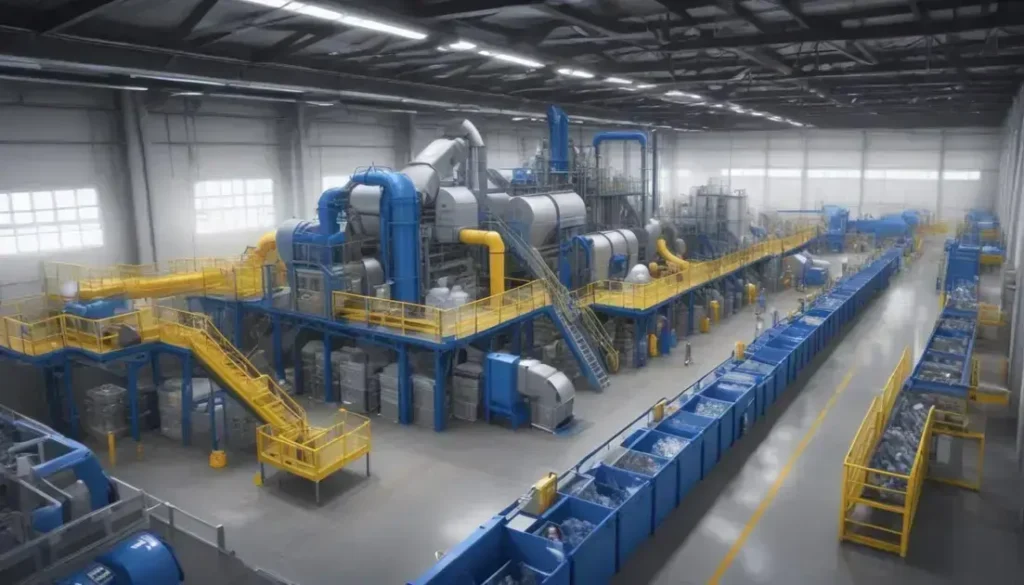Decarbonization involves reducing carbon emissions through sustainable practices and technologies, benefiting Canadian businesses by enhancing reputation, reducing costs, and creating new market opportunities while navigating challenges such as funding and regulatory compliance.
Decarbonization is a pressing concern worldwide, and it’s great to see Canadian businesses stepping up to the challenge. How does this shift affect your company?
Introduction to Decarbonization
Decarbonization has emerged as a critical global priority as nations strive to mitigate climate change impacts. This shift involves reducing carbon emissions across various sectors to achieve a more sustainable future. As environmental concerns grow, businesses must adapt their operational strategies to focus on sustainability.
Organizations are increasingly recognizing the importance of transitioning towards clean energy sources. This includes adopting renewable technologies such as solar and wind power, which play a significant role in reducing greenhouse gas emissions. Additionally, businesses are exploring innovative solutions that enhance energy efficiency and decrease reliance on fossil fuels.
The push for decarbonization isn’t just about compliance; it’s about seizing opportunities in the evolving market landscape. Companies committed to sustainability can access new funding sources, improve their brand reputation, and appeal to a growing segment of eco-conscious consumers. Moreover, by embracing decarbonization efforts, businesses can contribute to national and global climate goals, further cementing their role as responsible corporate citizens.
Investing in decarbonization initiatives may require upfront costs, but the long-term benefits can outweigh these investments. Enhanced operational efficiency, reduced energy costs, and a positive public image can lead to significant financial returns in the future. Therefore, it is essential for businesses to develop strategic plans that prioritize decarbonization as part of their core mission.
Current Funding Trends
Understanding current funding trends is essential for businesses aiming to navigate the landscape of decarbonization effectively. Various sources of funding are emerging to support sustainable initiatives, including government grants, private investments, and green bonds. These financial options encourage companies to innovate and invest in low-carbon technologies.
Government programs play a crucial role in facilitating funding for environmentally-focused projects. Many countries offer incentives for businesses that commit to reducing their carbon footprint. Programs providing tax credits and subsidies are designed to lower the financial burden and encourage the adoption of green technology.
Private investors are increasingly interested in sustainable practices. They recognize the long-term profitability associated with environmentally responsible companies. Venture capital firms and impact investors are focusing on startups that offer innovative solutions for decarbonization. This shift highlights a growing recognition that sustainability leads to financial success.
Furthermore, green bonds have gained significant traction as a funding mechanism. These bonds are specifically earmarked for projects that have positive environmental impacts. Companies that issue green bonds can attract a dedicated investor base that prioritizes social responsibility alongside financial returns.
By staying informed on these funding trends, businesses can position themselves strategically to secure the resources they need for effective decarbonization efforts, ultimately leading to a sustainable future.
Impact on Canadian Businesses
The impact on Canadian businesses due to the shift towards decarbonization is profound and multifaceted. As the demand for sustainable practices grows, companies are faced with both challenges and opportunities. Embracing sustainability can lead to increased consumer loyalty, as many Canadians prefer to support brands that prioritize environmental responsibility.
Organizations are now confronted with the necessity to adapt their operations to align with new regulations and market expectations. This means investing in clean technologies and re-evaluating supply chains to ensure they are as eco-friendly as possible. Businesses that fail to adapt may face productivity losses or obsolescence.
However, the transition also presents significant opportunities for growth. Companies that innovate and implement sustainable practices can tap into new markets and generate additional revenue streams. For instance, firms involved in renewable energy, waste management, and sustainable agriculture are witnessing increased interest from consumers and investors alike.
Furthermore, the Canadian government provides various incentives to support businesses committed to decarbonization. Access to funding and resources allows companies to offset transition costs and explore new avenues for sustainable revenue generation. Adopting these practices not only helps meet regulatory requirements but also positions Canadian businesses as leaders in the global market.
Climate Technology Developments
Recent climate technology developments have ushered in a new era of innovation aimed at combating climate change. These advancements are crucial as they work towards reducing greenhouse gas emissions and promoting sustainable practices across various industries. One significant area of progress involves renewable energy technologies, including solar panels and wind turbines, which are more efficient and cost-effective than ever.
Energy storage solutions, such as advanced batteries, are also evolving rapidly. These technologies enable the storage of energy generated from renewable sources, ensuring that supply can meet demand even during non-peak periods. This is vital for enhancing the reliability of green energy systems.
Another exciting development is in the realm of carbon capture and storage (CCS). Innovative methods are being designed to capture carbon dioxide directly from the atmosphere and store it underground, effectively mitigating the impacts of existing carbon emissions. These technologies represent a significant step towards achieving net-zero goals.
Moreover, advancements in smart grid technology facilitate better monitoring and distribution of energy resources, helping to optimize efficiency and reduce waste. By integrating these systems, businesses can significantly lower their energy consumption and carbon footprint.
As climate technology continues to evolve, Canadian businesses must stay ahead of the curve. Implementing these cutting-edge solutions can lead to substantial environmental benefits as well as competitive advantages in the marketplace.
Future Outlook and Challenges
The future outlook for decarbonization efforts is promising yet filled with challenges. As more businesses recognize the importance of sustainability, innovative solutions are rapidly emerging. However, to effectively implement these strategies, companies must address various obstacles that could hinder progress.
One significant challenge is the need for substantial investment in green technologies. While there is increasing availability of funding options, many companies may struggle to find the necessary resources to transition effectively. It is crucial for organizations to leverage government incentives and partnerships to support their sustainability initiatives.
Moreover, navigating the evolving regulatory landscape poses another hurdle. As governments worldwide implement stricter environmental regulations, businesses must stay informed and compliant. This often requires ongoing adjustments to operational practices, which can be complex.
Despite these challenges, the drive toward decarbonization presents incredible opportunities for economic growth and innovation. Companies that successfully adopt sustainable practices can enhance their reputations and attract environmentally conscious consumers. Collaboration within industries can also accelerate the development of new technologies and approaches.
Ultimately, overcoming the challenges associated with decarbonization will depend on a combination of innovative thinking, strategic investment, and a commitment to sustainability. By embracing this mindset, businesses can not only contribute to a healthier planet but also position themselves as leaders in the evolving market.
In Summary: Embracing Decarbonization
Decarbonization is becoming essential for businesses aiming to thrive in a sustainable future. As we have explored, adopting green technologies not only addresses climate change but also opens up new business opportunities.
While challenges exist, such as funding and regulatory compliance, the benefits of shifting towards sustainability are clear. Companies that innovate and embrace these practices are likely to improve their reputation and attract more customers.
By understanding funding trends and investing in climate technologies, businesses can lead the way in a transforming market. The future is bright for those who prioritize decarbonization, creating a healthier planet and a stronger economy.
In this journey, collaboration and continuous learning will be key. Every step taken towards sustainability is a step towards a better tomorrow. So, let us join together in this important effort to protect our environment and ensure a successful future for all.
Frequently Asked Questions
What is decarbonization and why is it important?
Decarbonization refers to reducing carbon emissions in order to combat climate change. It’s important because it helps create a healthier environment and ensures sustainability for future generations.
How can Canadian businesses benefit from adopting sustainable practices?
By adopting sustainable practices, Canadian businesses can enhance their reputation, attract eco-conscious consumers, and potentially reduce costs through improved efficiencies.
What challenges do businesses face when transitioning to decarbonization?
Businesses may face challenges such as securing funding, complying with new regulations, and the need for significant investments in green technologies.
What are some examples of climate technologies available today?
Climate technologies include renewable energy sources like solar and wind power, energy storage solutions, and carbon capture systems that help reduce greenhouse gas emissions.
How can businesses access funding for decarbonization projects?
Businesses can access funding through government grants, private investors, and green bonds specifically designed to support sustainable projects.
What is the future outlook for decarbonization efforts?
The future outlook is positive, with growing consumer demand for sustainability and innovation driving businesses to adopt greener practices. Collaboration and investment in new technologies are key for success.


